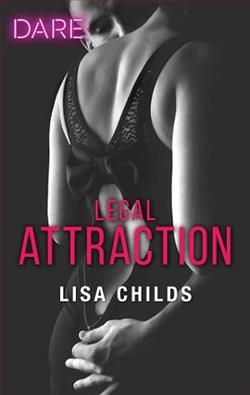Page 41 of Hiss and Tell
“Family history project,” I offer weakly as Mabel and Dorothy follow her in, their curious eyes taking in the ancient texts and scattered notes.
“At this time of night?” Dorothy raises an eyebrow, glancing pointedly at the clock.
“I lost track of time.” Not entirely a lie. When researching something this important, hours become meaningless.
Mabel approaches one of the open books, peering at an illustration of a male Gorgon with outstretched hands, crimson droplets falling from his palm into a ceremonial bowl. “This doesn’t look like history. It looks like…”
“Magic,” Iris finishes, picking up my hasty translation notes. Her expression shifts from curiosity to understanding. “This is about Aspen, isn’t it?”
My snakes react before I can maintain my composure, coiling protectively around themselves. These women see too much, know me too well.
“Sit,” Dorothy commands, already moving toward the kitchen. “I’ll make tea, and you’ll tell us everything.”
Resistance seems futile. Besides, these three women, with their combined decades of life experience, might offer the perspective I badly need.
Once we’re settled with steaming mugs, Iris fixes me with her no-nonsense stare. “Start at the beginning.”
“It’s not my secret to tell,” I hedge.
“But it’s your research to explain,” Mabel counters gently. “Something about healing blood, if these illustrations are anything to go by.”
Taking a deep breath, I choose my words carefully. “Aspen shared something personal with me. A health condition that affects her… affects our relationship. And I believe there might be something in my heritage—in Gorgon biology—that could help.”
“The healing blood,” Dorothy says, glancing at the books. “I’ve heard rumors about it. Never knew if they were true.”
“It’s true.” Seeing no point in hiding what the books clearly show, I continue, “Male Gorgons have certain… abilities. The sanctuary effect, the manifestations you’ve seen. But there’s another, rarer gift mentioned in our oldest texts.”
“Your blood can heal,” Iris states simply. The straightforward way she says it, without shock or disbelief, loosens something in my chest.
“Theoretically, yes. But not everything. The texts are specific about certain conditions. And I’ve never…” I hesitate. “I’ve never attempted it.”
“Because you’ve never had reason to,” Mabel suggests, her understanding warming me.
“Yes.” My snakes nod in agreement. “It’s considered sacred. Intimate. Something only shared in the most profound relationships.”
The women exchange glances loaded with unspoken communication.
“And you love her,” Dorothy says. Not a question.
“Completely.” The admission comes easily. “But I don’t want to offer false hope. The ritual is complex, and the texts aren’t entirely clearabout success rates or limitations. What if I’m wrong? What if I give her false hope and then disappoint her?”
Iris sets down her teacup with decisive authority. “You tell her anyway. She deserves to know all the options, even uncertain ones.”
“But—”
“No buts,” she interrupts. “Think about it, Sebastian. What’s worse? Offering a possibility that might not work, or withholding a possibility that could?”
The question lands like a stone in still water, rippling through my doubts.
“Besides,” Mabel adds, her gentle voice a contrast to Iris’s sharpness, “isn’t the real healing in the trust? In sharing something this profound?”
My snakes sway thoughtfully as I consider her words. The actual ritual described in the texts involves more than just physical healing. It creates a bond, an exchange of energy and essence that transcends themerely physical.
“There’s something else troubling you,” Dorothy observes, her shrewd eyes missing nothing. “Something beyond the uncertainty.”
Looking down at my hands—hands large enough to crush, to harm, but that have only ever sought to nurture and protect—I voice the fear lurking beneath all others.
“What if she thinks I see her as something to be fixed? What if she believes I only want her if she’s… changed somehow?”















